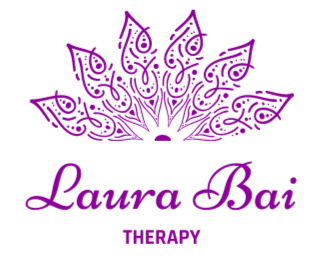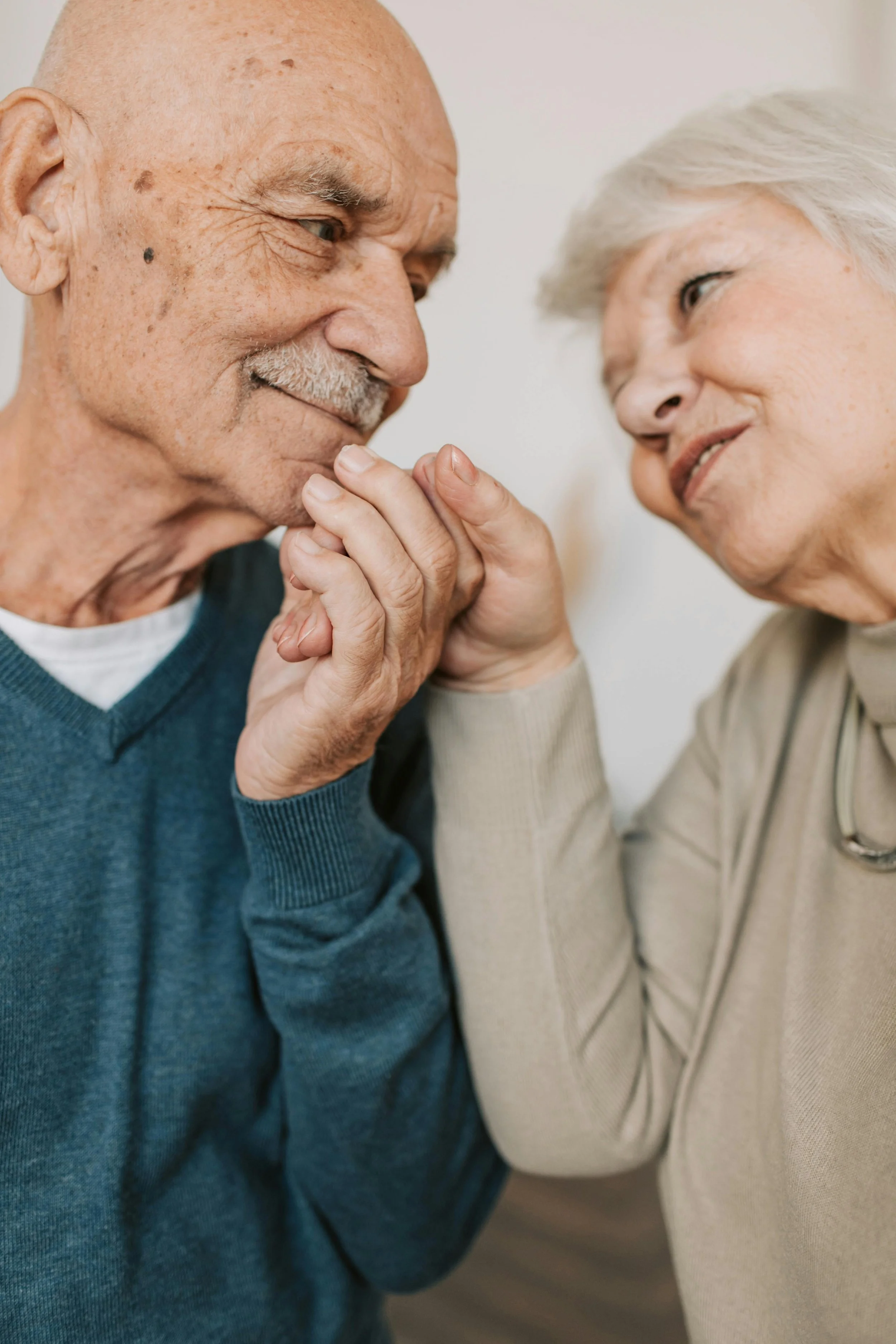
Healing from Caretaking and Codependency
Specialized Therapy in Oakland, CA
Are you exhausted from constantly putting others' needs before your own? Do you feel compelled to take care of your partner, family members, friends, or colleagues, even when it drains your energy and leaves you feeling resentful? As an Asian-American therapist who understands the complex cultural and emotional factors that can trap you in these patterns, I'm here to help.
I provide trauma-informed therapy for individuals, couples, and families struggling with patterns of caretaking and codependency in Oakland and throughout California. My approach combines evidence-based therapeutic modalities with a deep understanding of the Asian-American experience, particularly the unique challenges faced by those navigating family expectations and individual needs.
If you find yourself constantly giving with no expectations but rarely receiving the care you need, you're not alone. I specialize in helping you break free from exhausting cycles of people-pleasing and caretaking, and develop healthier relationships that honor your own needs and well-being.
Understanding Caretaking and Codependency
Caretaking and codependency occur when your desire to help others becomes compulsive and harmful, driven more by a sense of obligation than genuine care for the other person. Unlike healthy caregiving, which respects boundaries and promotes independence, codependent caretaking creates unsustainable patterns where you sacrifice your well-being to meet others' needs.
Many of my clients who grew up in immigrant families struggle to recognize caretaking and codependency because the values around family and collective well-being make these patterns seem normal, even virtuous. When you've been raised with the understanding that love means sacrifice and that your worth depends on what you can do for others, it becomes difficult to distinguish between healthy caregiving and codependent behaviors.
Perhaps you learned early that keeping the family together was your responsibility, or that expressing your own needs would burden parents who had already sacrificed so much. Maybe you became the translator, mediator, or emotional caretaker for family members navigating a new culture. These roles, while understandable and even necessary at the time, can evolve into long-term patterns that leave you feeling depleted and disconnected from your own life.

Common Struggles with Caretaking and Codependency
If you’re struggling with caretaking and codependency, you may experience:
Compulsive Helping Patterns: You feel compelled to offer help, jump in to solve other people's problems, or take responsibility for outcomes beyond your control. You struggle to maintain personal boundaries and often say yes when you want to say no, fearing disappointment or conflict.
Neglecting Your Own Needs: You consistently prioritize others' comfort over your own well-being, leading to exhaustion, resentment, and disconnection from your authentic self. Self-care feels selfish or unnecessary, especially when others seem to need you more.
Enabling Behaviors: You consistently rescue loved ones from natural consequences, preventing them from learning and growing. This might involve covering for a family member's mistakes, lending money repeatedly, or managing another person's responsibilities because you fear what might happen if you don't.
Self-Worth Struggles: Your sense of value depends on external validation. You feel worthwhile when you're needed and experience anxiety when others don't require your help. The thought of someone being disappointed in you feels unbearable.
Emotional Overwhelm: You feel guilty for wanting time for yourself, worry constantly about others' well-being, and struggle with feelings of resentment toward the very people you're trying to help. These conflicting emotions can leave you feeling confused and trapped.
My Approach to Healing Caretaking and Codependency
In my practice, I use multiple evidence-based therapeutic approaches to help clients understand and heal from and change patterns of caretaking and codependency. My care is personalized to your unique personal history, goals for change, and cultural background.
Attachment-Focused EMDR
For clients whose caretaking patterns stem from early attachment experiences, I use Attachment-Focused EMDR (Eye Movement Desensitization and Reprocessing) to process underlying wounds that drive codependent behaviors. This approach is particularly effective for addressing the intergenerational patterns common in immigrant families, where experiences of separation, survival, and adaptation may have created deep beliefs about love, safety, and responsibility.
AF-EMDR helps process the shame and guilt that often fuel caretaking behaviors, allowing you to develop healthier self-esteem and more balanced relationships. Many clients find that addressing these core experiences naturally leads to improved boundaries and greater self-awareness.
Somatic Therapy
Caretaking and codependency often involves disconnection from your body's signals about safety, boundaries, and needs. Through Somatic Therapy, I help you reconnect with your body's wisdom and develop greater awareness of physical and emotional limits.
This approach is especially valuable for caretakers who have learned to override their body's signals to remain constantly available for others. Somatic work helps restore this crucial connection and teaches you to trust your physical sensations as valuable information about your well-being.
Parts Work
I use Parts Work to help clients understand the different aspects of themselves—the part that wants to help, the part that feels resentful, the part that's afraid of failing others. This approach develops internal collaboration rather than tension and helps you understand why you feel compelled to help others even when it negatively impacts your well-being.
Parts Work is particularly effective for reducing internal criticism and developing self-compassion, essential components of healing from caretaking and codependent patterns.
Couples and Family Therapy
Sometimes healing from caretaking and codependency is best addressed within the context of relationships. I provide couples and family therapy to help all members understand how caretaking and codependent patterns develop and work together to create healthier dynamics.
This approach is especially valuable when codependent patterns are deeply embedded in family systems or when traditional expectations make individual boundary-setting feel like a betrayal of family values.
What to Expect in Our Work Together
Initial Consultation and Assessment
I offer a free 20-minute consultation where we can discuss your specific situation and explore whether my approach might be helpful for you. During this conversation, we'll talk about your background, relationship patterns, and hopes for change.
Getting to Know Each Other
In our first full session, we get to know each other and explore your presenting concerns in detail. I listen to your story and begin to understand how caretaking patterns developed in your life, examining family dynamics, cultural influences, and early experiences that shaped your beliefs about relationships and self-worth.
Creating Your Support Plan
Together, we'll establish what you want to work on and develop approaches that feel both effective and respectful of your values. We will co-create an individualized plan to support you in developing healthier boundaries and processing the relational dynamics that are at the root of caretaking and codependent patterns.
Ongoing Support and Progress
Appointments are generally scheduled weekly or bi-weekly, providing consistent support as you navigate these changes. Between sessions, you will practice new communication strategies, prioritize your needs and boundaries, and explore specific themes through self-reflection. Our therapeutic relationship becomes a space for practicing new patterns. As you learn to advocate for your needs in our sessions, communicate boundaries clearly, and receive support without feeling obligated to reciprocate, these skills naturally transfer to other relationships.
Specialized Support for Asian-Americans
My practice focuses particularly on serving high-achieving Asian-Americans struggling with caretaking and codependency. I understand the additional pressures that come with professional success in communities where achievement is highly valued but personal struggles are often kept private.
Many of my clients navigate the complex terrain of being caught between worlds—honoring the sacrifices their families made while also creating space for their own needs and desires. You might feel pressure to be the "model minority" who never complains, or struggle with the weight of representing your family's success story while privately feeling overwhelmed and depleted.
Understanding Intergenerational Experiences
In my work, I frequently address how family dynamics and immigration experiences contribute to caretaking patterns. Perhaps your parents left everything behind for your opportunities, creating unconscious beliefs that love requires sacrifice. Maybe you learned that expressing your own needs would add to the burdens your family was already carrying. You might have grown up feeling responsible for your parents' emotional well-being, translating not just language but also navigating cultural differences that felt overwhelming. These early experiences, while shaping important strengths like empathy and resilience, can also create patterns where your own needs always come last.
Using approaches like AF-EMDR and Parts Work, we can gently process these underlying experiences while developing new, healthier patterns of relating to yourself and your loved ones.
Navigating Identity and Expectations
Many clients struggle with the tension between individual fulfillment and family expectations. You might feel torn between the career path your family envisioned and what actually brings you joy, or struggle with relationship choices that don't align with traditional expectations.
The pressure to excel can extend beyond academics or career into every aspect of life—being the perfect daughter, employee, friend, or partner. When your identity becomes tied to meeting everyone else's expectations, it becomes difficult to know what you actually want for yourself.
We'll explore how to maintain important connections with family and community while also honoring your authentic self and personal needs. This isn't about rejecting your heritage, but rather finding ways to express your values that feel genuine and sustainable.
Breaking Free from Patterns That No Longer Serve You
Recovery from caretaking and codependency involves transforming your relationship with both yourself and others. Instead of constantly rescuing and enabling, you'll learn to offer genuine support that empowers loved ones while preserving your own well-being.
Learning Healthy Caregiving
True helping respects others' autonomy and inherent capability. Together, we'll explore the difference between healthy caregiving and codependent caretaking, developing your ability to listen with an open heart without immediately jumping into problem-solving mode.
You'll learn to allow natural consequences when appropriate, understanding that genuine love sometimes means stepping back and trusting others to handle their own challenges. This shift often improves relationships by showing respect for others' capabilities while protecting your own energy. Instead of taking responsibility for other people's problems, you'll develop skills for supportive presence that empowers rather than enables.
Developing Self-Awareness and Personal Growth
Healing involves developing greater self-awareness about your motivations, triggers, and authentic needs. You'll learn to recognize when you're giving advice without being asked, when you're taking responsibility for outcomes beyond your control, and when you're neglecting your own well-being.
This increased awareness allows you to make conscious choices about when and how to help others, ensuring that your care comes from abundance rather than depletion. Personal growth in our work together often involves learning to tolerate discomfort as you practice new behaviors and develop a stronger sense of self.
Many clients discover that as they become more aware of their own needs and feelings, they're actually better able to support others in meaningful ways. When you're not exhausted from constant giving, you have more genuine presence and care to offer.
Improving Mental Health and Relationships
As you heal from caretaking and codependency, you'll likely notice improvements in your mental health, relationships, and overall quality of life. Many clients report feeling less anxious, more confident, and more connected to their authentic selves.
Your relationships often improve as well, becoming more balanced and mutually supportive. When you're no longer depleted from compulsive giving, you have more genuine care and presence to offer the people who matter most to you.
You may find that some relationships change as you develop healthier boundaries. While this can initially feel scary, it often leads to deeper, more authentic connections with people who appreciate and respect your growth.

Ready to Begin Your Healing Journey?
If you recognize yourself in these patterns and feel ready to explore a different way of being in relationships, I'm here to support you. The exhaustion, resentment, and confusion that often accompany caretaking and codependency don't have to be permanent.
You don't need to have all the answers or know exactly what you want to change. Many clients contact me feeling confused about their relationships and uncertain about what healthy boundaries look like. This uncertainty is completely normal and often the beginning of important growth. I offer a free 20-minute consultation where we can discuss your specific situation and explore whether my approach might be helpful for you.
Your journey toward healthier relationships and a more authentic way of being in the world is entirely possible. You deserve to experience love and connection that doesn't require you to sacrifice yourself. With professional guidance and commitment to your own growth, you can transform caretaking and codependency into genuine empowerment and connection.
Ready to begin your healing journey? Contact me today to schedule your free consultation and take the first step toward healthier relationships with yourself and your loved ones.











